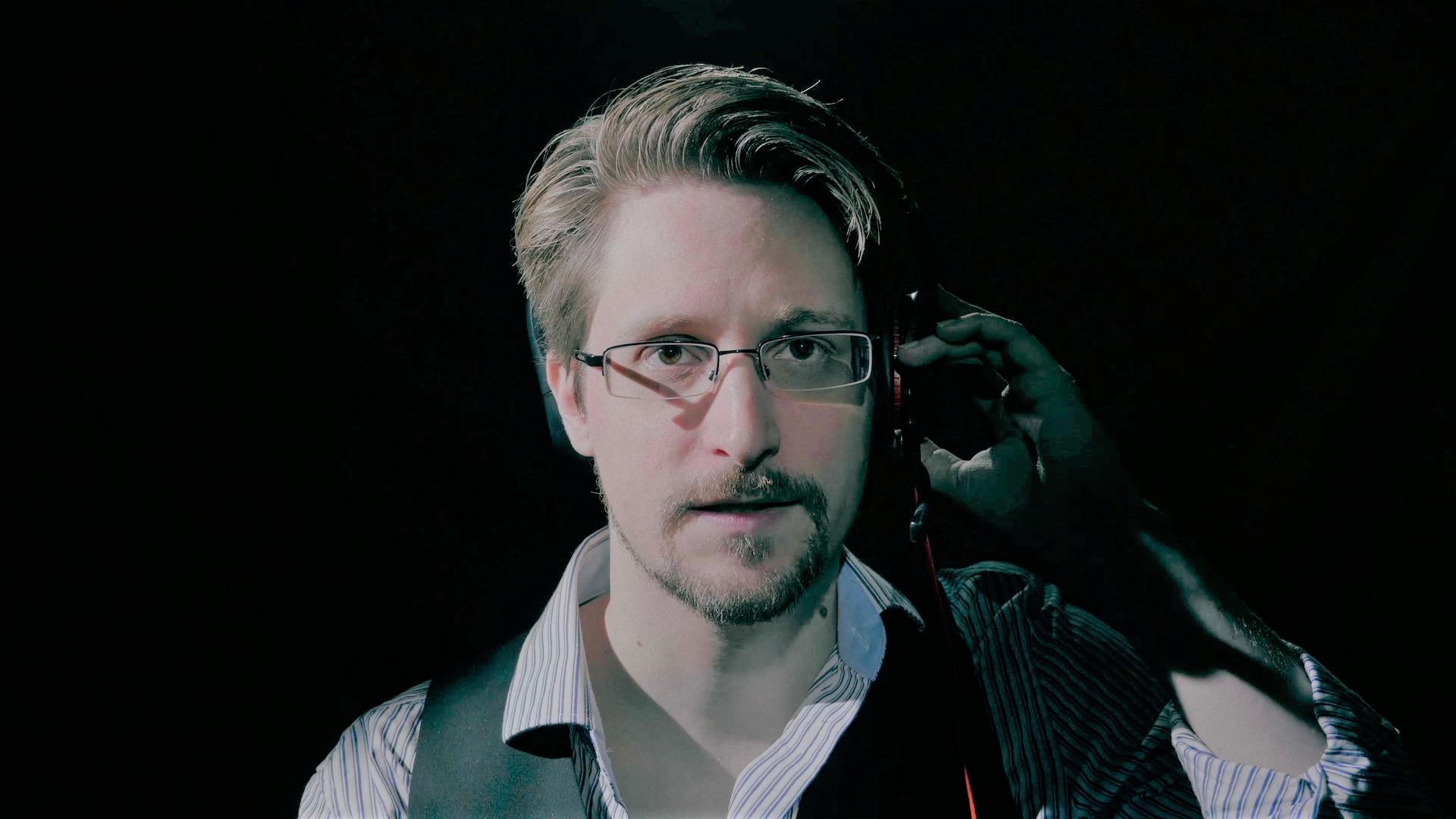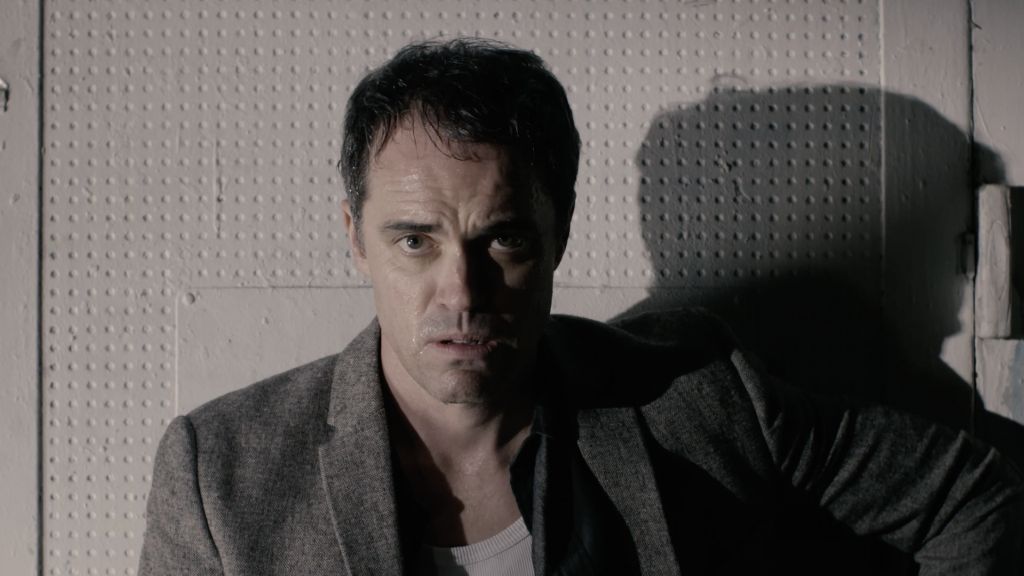Reviews
1984: An Important New Score, with Edward Snowden's Imprimatur
 LONDON--It is 72 years since George Orwell published Nineteen Eighty-Four: A Novel, his vision of a dystopian future where mass surveillance kept civilians under the strict control of an all-powerful state. When composer Mihkel Kerem read it, he saw parallels with our own time, and decided to join the ranks of artists who have warned about dystopias through the years. The result is 1984, a new 65-minute film reimagining Orwell’s classic novel. It premieres on April 23 on OnJam.tv, a new video streaming platform for concerts and arts performances, and is available to watch on demand for 30 days.
LONDON--It is 72 years since George Orwell published Nineteen Eighty-Four: A Novel, his vision of a dystopian future where mass surveillance kept civilians under the strict control of an all-powerful state. When composer Mihkel Kerem read it, he saw parallels with our own time, and decided to join the ranks of artists who have warned about dystopias through the years. The result is 1984, a new 65-minute film reimagining Orwell’s classic novel. It premieres on April 23 on OnJam.tv, a new video streaming platform for concerts and arts performances, and is available to watch on demand for 30 days.
The work is presented by the Netherlands-based New European Ensemble and presents its contemporary relevance credentials from the start by featuring National Security Agency whistleblower Edward Snowden, now exiled in Russia, who provides an introduction and plays a small dramatic part.
The producers say the motivation behind the project “was to demonstrate the relevance of 1984 in our time, as our lives increasingly become dependent on technology that also allows governments and corporates to intercept and record unprecedented levels of data about us.”
A magnificent score
It is a gripping drama, imaginatively filmed, but needs a first-class score to make its effect. Mihkel Kerem rises to the challenge magnificently. A thumping rhythmic underpinning lies beneath the start of the narration. Strings join, then a solo cello with a plaintive, worried theme, then brass, ratcheting up the tension with a stabbing theme leading to the opening title.
The unrelenting score feels like a constantly building crescendo for a full ten minutes at the beginning, which makes for a stunning contrast when it falls away to silence but for some distant sirens, and when beautifully conceived elegiac passages make their way in. Elsewhere are Stravinskian outbursts and writhings, contributing to a massively powerful piece.
The socially distanced New European Ensemble was filmed in an industrial setting, all players dressed in boiler suits. The playing is superb, both in solo and ensemble, music-making of complete commitment that perfectly captures the spirit of a chilling score, conducted by the composer.
 The film features stock footage – of the refugee crisis, military parades, armament displays, serried ranks of uniformed workers in factory and world leaders including Trump, Putin, Bashar al-Assad and Xi Jinping – and newly shot material with players from the ensemble as characters in the drama, notably cello soloist Willem Stam, who appears as Orwell’s protagonist, Winston Smith. Amusingly, the composer plays the role of Big Brother, staring out menacingly from T.V. screens everywhere. The story is narrated by British actor Joseph Thompson, who puts in a great performance.
The film features stock footage – of the refugee crisis, military parades, armament displays, serried ranks of uniformed workers in factory and world leaders including Trump, Putin, Bashar al-Assad and Xi Jinping – and newly shot material with players from the ensemble as characters in the drama, notably cello soloist Willem Stam, who appears as Orwell’s protagonist, Winston Smith. Amusingly, the composer plays the role of Big Brother, staring out menacingly from T.V. screens everywhere. The story is narrated by British actor Joseph Thompson, who puts in a great performance.
This is a superb telling of Orwell’s story, succinctly summing up a modern-day equivalent of the novelist’s claustrophobic vision. In this 2021 version, the re-writing of history takes the form of editing Wikipedia. At one point we see Edward Snowden’s Wiki entry being erased, making him a non-person.
Alexa as Big Brother for the 21st century
Snowden himself says that in Orwell’s vision, people were keeping their voices down for fear of Big Brother; now they do the same because Alexa is listening. He says he read 1984 while he was working for the intelligence community but before considering “coming forward,” as he puts it. He says: “Increasingly we lose our seat at the table and our ability to steer the future and all of these processes begin from the corruption of language which was Orwell’s greatest fear.”
The new work was produced in collaboration with British production group Greengage, which is part of OnJam.tv, a London-based technology start-up specializing in concerts and performances and aiming to give artists an opportunity to build online revenue. It was directed by Gijs Besseling, Emlyn Stam, and Sophie Hunter.
Besseling says: “Today the digital age is gaining momentum and ‘deep fakes’ are increasingly difficult to distinguish from real videos. At times fake news supersedes real news. Big Data means that the big tech companies know where we are, what we buy and what we post. The social media we use are not the product, our data is. As artists it is our task to reflect on these subjects and encourage people to think about them carefully. If in the future the wrong people come to power and gain access to all of our data our freedom will be on the line.”
Mihkel Kerem is of Estonian descent. Alongside his composing work, he is a violinist and the current joint assistant concertmaster with the Royal Liverpool Philharmonic Orchestra. He has written six symphonies, a number of concertos and orchestral works plus much chamber music, and has been invited as composer-in-residence at the Schleswig Holstein Music Festival in Germany and at the Aurora Chamber Music Festival in Sweden.
On the strength of 1984, it is to be hoped that we get to hear a good deal more of his work.
Tickets for 1984 are available from £7.50 ($10.40) here.
Photos: Edward Snowden (top); Joseph Thompson





 FEATURED JOBS
FEATURED JOBS

 RENT A PHOTO
RENT A PHOTO


